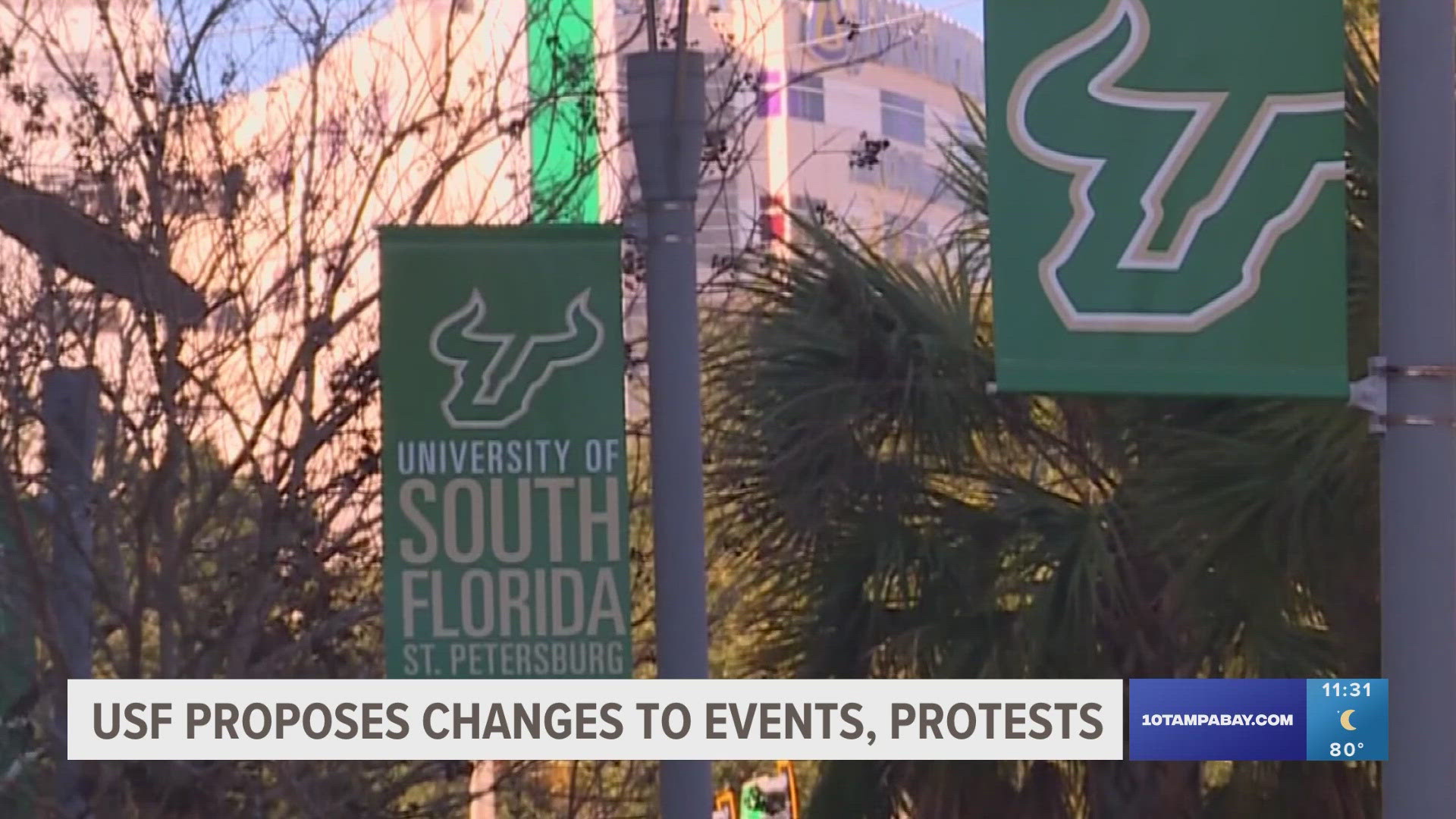TAMPA, Fla. — The University of South Florida is looking into changes that could affect how events and protests are planned on campus.
It comes months after a pro-Palestine encampment, and protest ended with several people arrested and authorities deploying tear gas. Some critics argue the proposals come in response to recent protests and say they go too far.
Under the proposed rules, all planned activities must require prior approval. Modifications to campus space like adding signs and banners must also be pre-approved, according to the proposed policy.
Any activity must be completed on weekdays no longer than 5 p.m., and weekend activities cannot take place unless it is approved, according to the proposal.
Amplified sound is also subject to approval and only university entities or organizations would be permitted in those cases.
"It's just a big attempt from USF to try to limit free speech," said former USF student Victoria Hinckley.
Hinckley, who took part in the protests and is a member of Students for a Democratic Society, said she was expelled afterward and wasn't able to get her diploma after the protests.
She believes the new proposals are tied to previous protests.
A USF spokesperson stated the school reviews policies regularly, adding while the proposed changes are still under review and may be adjusted, USF believes the drafted modifications will help continue to maintain an environment for students, faculty and staff to be successful and will more clearly reflect expectations for activities.
"USF values free speech and the right for individuals and groups to gather and express themselves as long as those actions follow university policy and the law," said Adam Freeman, USF associate VP for communications and public relations.
Clay Calvert, a First Amendment expert and non-resident senior fellow at the American Enterprise Institute, said the First Amendment does allow for content-neutral time, place and manner regulations, but those regulations have to be reasonable.
"In terms of reasonableness, I think that's going to really be a sticking point here," Calvert said.
By content neutrality, Calvert said universities or schools cannot single out particular topics or ideas for regulation, and not others.
Under the Campus Free Expression Act in Florida, Calvert said universities must show that it has an important or substantial interest that justifies regulations to begin with and also prove that the regulations are narrowly tailored to serve the substantial interest.
Calvert said schools would need to have a strong case on why approval is necessary in areas like the outdoor areas on campus, where spontaneous and contemporaneous speech are presumptively allowed.
In addition to these requirements, ample alternative avenues of communication must also be provided.
The proposals would also require non-USF guests to potentially show ID or register to attend an event, and may be required to be accompanied by a USF representative like a student or faculty.
At least six of the 10 people arrested during a protest at USF were not students.
The proposed changes may also restrict fundraisers using homemade food. It states all food and drinks must be from an approved food service vendor, and cannot be prepared in a private home and later offered for sale to the university community or visitors on campus.
Anyone who wishes to comment or submit feedback to the proposed regulations may do so through Aug. 11.

